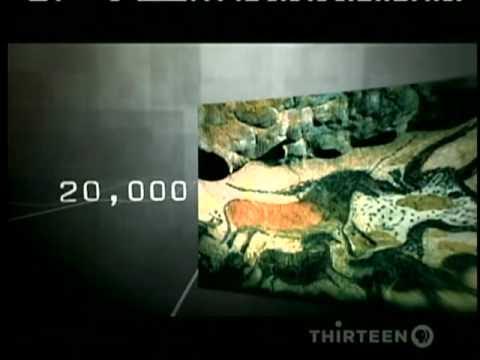Where and When Did Humans Evolve? | The Advanced Apes | PBS Digital Studios
Summary
TLDRThis video delves into human evolution, tracing our origins to Africa as suggested by Charles Darwin. It examines fossil evidence, like Australopithecus afarensis, and genetic similarities with modern apes. The migration of early humans from Africa and their interaction with other hominid species are explored. The narrative highlights significant changes brought on by civilization, including adaptations to diets and disease. Looking to the future, the video discusses the potential of technology to direct human evolution, raising questions about ethical implications and the nature of our continued development beyond natural selection.
Takeaways
- 😀 Human evolution is a result of biological evolution, with our species tracing back to Africa.
- 🦧 Charles Darwin hypothesized that our common ancestry lies with African apes, a claim supported by significant fossil and genetic evidence.
- 🦴 The discovery of ancient fossils, like Australopithecus afarensis (Lucy), highlights the characteristics of our early ancestors, including bipedalism.
- 🌍 Modern humans began migrating out of Africa around 100,000 years ago, adapting to various environments across the globe.
- 🔬 Genetic studies reveal that humans share a striking similarity with chimpanzees, our closest living relatives.
- 📈 Over the past 10,000 years, human evolution has been influenced by the development of civilization and the shift from hunter-gatherer lifestyles.
- 🥛 Adaptations, such as lactose tolerance and disease resistance, emerged as humans transitioned to settled agricultural societies.
- 🛠️ Technological advancements have allowed humans to dedicate their efforts to diverse fields, fostering cultural and scientific progress.
- 🧬 The future of human evolution may involve genetic engineering and technology, allowing us to direct our own evolutionary path.
- 🔮 The concept of 'intelligent direction' replaces natural selection in shaping future human evolution, raising questions about ethics and implications.
Q & A
What is the primary theory about human evolution proposed by Charles Darwin?
-Charles Darwin proposed that humans share a common African origin, which he formulated after observing chimpanzees and gorillas.
What significant fossil evidence supports the idea of human evolution from Africa?
-The discovery of ancient human-like fossils in East Africa, particularly Australopithecus afarensis, provides significant evidence for human evolution.
How does the fossil Lucy contribute to our understanding of early human traits?
-Lucy, a well-preserved Australopithecus afarensis fossil, demonstrates bipedalism, indicating that early human ancestors walked upright before developing larger brains.
What does the evidence from Australopithecus sediba reveal about early hominids?
-Australopithecus sediba shows adaptations for both walking and climbing, suggesting a gradual evolution of locomotion in early hominids.
What genetic evidence supports the theory that chimpanzees are our closest living relatives?
-Genetic studies comparing human DNA with ape DNA reveal significant similarities, confirming that chimpanzees are our closest living relatives, followed by gorillas.
When did modern humans first migrate out of Africa?
-Modern humans began migrating out of Africa around 100,000 years ago, with evidence suggesting small bands of people traveled along coastlines.
What role did cultural and technological evolution play in human development over the last 10,000 years?
-Cultural and technological evolution allowed humans to transition from hunter-gatherer societies to sedentary civilizations, leading to biological changes like lactose tolerance and disease resistance.
What are some potential methods for humans to direct their own evolution in the future?
-Future methods may include genome engineering to modify our DNA or replacing cellular structures with nanoengineered computers that can perform biological tasks more efficiently.
How might intelligent direction of evolution differ from natural selection?
-Intelligent direction of evolution involves deliberate changes to the genome or physiology, contrasting with natural selection, which relies on environmental pressures and random mutations.
What implications does the ability to engineer human evolution have for society?
-The ability to engineer human evolution raises ethical questions about equity, consent, and the potential consequences of altering human capabilities and traits.
Outlines

Dieser Bereich ist nur für Premium-Benutzer verfügbar. Bitte führen Sie ein Upgrade durch, um auf diesen Abschnitt zuzugreifen.
Upgrade durchführenMindmap

Dieser Bereich ist nur für Premium-Benutzer verfügbar. Bitte führen Sie ein Upgrade durch, um auf diesen Abschnitt zuzugreifen.
Upgrade durchführenKeywords

Dieser Bereich ist nur für Premium-Benutzer verfügbar. Bitte führen Sie ein Upgrade durch, um auf diesen Abschnitt zuzugreifen.
Upgrade durchführenHighlights

Dieser Bereich ist nur für Premium-Benutzer verfügbar. Bitte führen Sie ein Upgrade durch, um auf diesen Abschnitt zuzugreifen.
Upgrade durchführenTranscripts

Dieser Bereich ist nur für Premium-Benutzer verfügbar. Bitte führen Sie ein Upgrade durch, um auf diesen Abschnitt zuzugreifen.
Upgrade durchführenWeitere ähnliche Videos ansehen
5.0 / 5 (0 votes)






